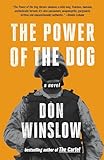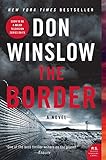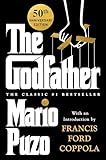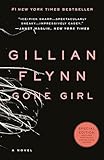Don Winslow’s latest novel, City on Fire, set in the author’s native Rhode Island, is the first in a trilogy about a mob war between Irish and Italian crime families in 1980s Providence. It is not, to be frank, top-shelf Winslow. The plot is leisurely in ways his novels rarely are, and I felt the dearth of fully realized female characters more keenly than I had in his earlier books.


 But to put it this way is unfair to City on Fire. Winslow has set the bar so high with books like Savages, his paean to homicidal SoCal stoner cool, and with his masterwork, the Cartel Trilogy— The Power of the Dog, The Cartel, and The Border—about Mexico’s bloody narco wars, that what for most writers would be a career-capping achievement is, for Winslow, just ho-hum, another solid crime tale fresh in from the Winslow assembly plant.
But to put it this way is unfair to City on Fire. Winslow has set the bar so high with books like Savages, his paean to homicidal SoCal stoner cool, and with his masterwork, the Cartel Trilogy— The Power of the Dog, The Cartel, and The Border—about Mexico’s bloody narco wars, that what for most writers would be a career-capping achievement is, for Winslow, just ho-hum, another solid crime tale fresh in from the Winslow assembly plant.
Still, City on Fire isn’t a bad place to start building your Winslow collection. Before he wrote novels, Winslow was a private investigator, and he brings to all his books a deep understanding of criminal organizations, both at a human level and as business enterprises.
This is especially true in City on Fire, which opens as two local crime families, the Murphys and the Morettis, gather for a big clam bake held every year to cement the peace between the families and keep the junior mobsters from killing each other. As the scene unfolds, we learn how the Providence mob works, the Irish Murphys running the longshoreman’s unions and the Italian Morettis the Teamsters. “How they had fought each other, these two immigrant tribes, for a place to put their feet,” Winslow writes. “The Irish in Dogtown, the Italians on Federal Hill, toeholds carved out of grudging New England granite.”
In the years since, the mob leaders have forged an uneasy peace, which is broken after the clam bake when a brash Murphy lieutenant makes a play for the girlfriend of one of the Moretti mobsters. She claims he assaulted her, and the Moretti men, in full chest-thumping fury, beat the offending Irishman nearly to death with baseball bats, setting in motion the mob war at the center of the book.
 The press materials for City of Fire attempt to coat all this with a frosting of Greek mythology, likening the novel’s hero, a young Irish dockworker named Danny Ryan, to Aeneas, and Pam, the girlfriend whose accusation sets off the mob war, to a modern-day Helen of Troy. Maybe. The novel’s more obvious antecedents would seem to be Mario Puzo’s The Godfather and the mobster films of Martin Scorsese. City on Fire is good, old-fashioned American pulp fiction—intelligent, well-written pulp, even—but pulp nonetheless.
The press materials for City of Fire attempt to coat all this with a frosting of Greek mythology, likening the novel’s hero, a young Irish dockworker named Danny Ryan, to Aeneas, and Pam, the girlfriend whose accusation sets off the mob war, to a modern-day Helen of Troy. Maybe. The novel’s more obvious antecedents would seem to be Mario Puzo’s The Godfather and the mobster films of Martin Scorsese. City on Fire is good, old-fashioned American pulp fiction—intelligent, well-written pulp, even—but pulp nonetheless.
In the 1980s, when the novel is set, the port of Providence is slowly dying, and the local mob outfits, always in the shadow of the big-city Mafia outfits, risk being swallowed up by New York’s Five Families. This leaves local mobsters to make Lincoln-esque tactical calculations aimed at maximizing their fighting strength without sacrificing their criminal enterprises or the goodwill of local politicians and police, who look the other way so long as they stay away from drug dealing and don’t leave too many dead bodies on the streets.
For Danny Ryan, who gradually gains control of the badly outgunned Irish mob as other family members are killed off or prove unworthy, the calculus is brutal. His Italian rivals can call on hired assassins from the
New York Mafia families and own the city’s mayor and a sizeable portion of the local police force, while he’s stuck with a handful of local men and a lone Northern Irish separatist, who quickly gets himself shot.
The financial mismatch is even more lopsided: “the Irish have the longshoreman’s union, the docks, and some small gambling and loan-sharking; the Morettis have the Teamsters, the construction unions, the vending machines, cigarettes and alcohol, major gambling, major money on the street, strip clubs and prostitution.”
“That’s the problem with a war,” Danny reflects, “you have the challenge of trying to stay alive and at the same time make a living. Hard, when you’re being hunted, to go out and make your collections, or make a score, or even get back and forth from work.”
Of course, this being a gangster novel, Danny makes up for what he lacks in men and materiel with brains and pluck, and he survives, battered but unbowed, to take what surely will be a starring role in the next two installments of the trilogy.
And of course, Danny being a man, he gets to use his brains and pluck. For the most part, the women in City on Fire are relegated to the role of worried wife, or, in the case of Pam, the novel’s would-be Helen of Troy, the face that launches a thousand mob hits.
The lone exception is Danny’s estranged mother, Madeline (an Aphrodite stand-in, according to City on Fire’s press materials scorecard), who has traded on her beauty to escape her trailer-park beginnings and become first a Vegas showgirl and then one half of a marriage of convenience to a spectacularly rich, and spectacularly ugly, manufacturer of women’s undergarments.
This is a common figure in Winslow novels, the calculating woman who uses her beauty to buy power and influence over men. But here, perhaps because Madeline’s Vegas milieu isn’t drawn with Winslow’s usual exacting verisimilitude or else because Madeline doesn’t have a lot to do in the novel other than be fiercely maternal toward Danny and his family, her character feels flat and not a little contrived.
 This strikes me as a problem male crime writers need to solve. Crime is, almost by definition, a male-dominated world, but Gone Girl author Gillian Flynn and Tana French, who writes the Dublin Murder Squad novels, have found ways to make women central to their plots without resorting to clichés. And because women read many more novels than men do, their books have been runaway bestsellers.
This strikes me as a problem male crime writers need to solve. Crime is, almost by definition, a male-dominated world, but Gone Girl author Gillian Flynn and Tana French, who writes the Dublin Murder Squad novels, have found ways to make women central to their plots without resorting to clichés. And because women read many more novels than men do, their books have been runaway bestsellers.
One senses Winslow puzzling out how to pull off this same trick, but even in his best novels, a woman’s principal power resides in her beauty —that is, in how men see her and how she’s able to use that to get what she wants. That was never really how the world worked, but in books written and talked about exclusively by men, it could plausibly seem that way. But those days are gone and men with protean storytelling talents like Don Winslow need to adapt to the times.
The post Don Winslow’s ‘City on Fire’: Good, Old-Fashioned American Pulp appeared first on The Millions.
Source : Don Winslow’s ‘City on Fire’: Good, Old-Fashioned American Pulp











